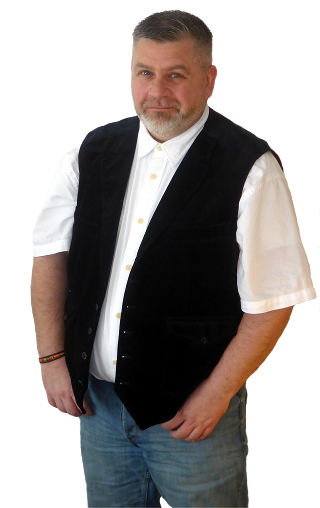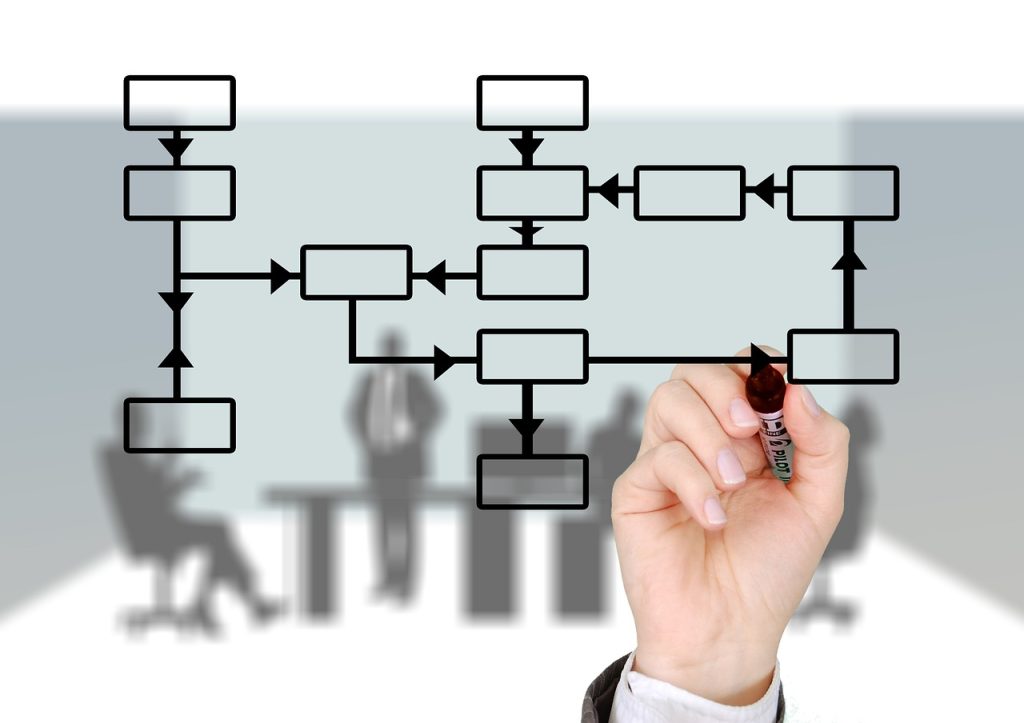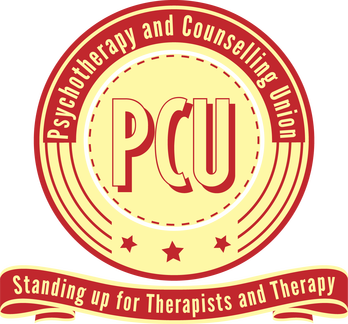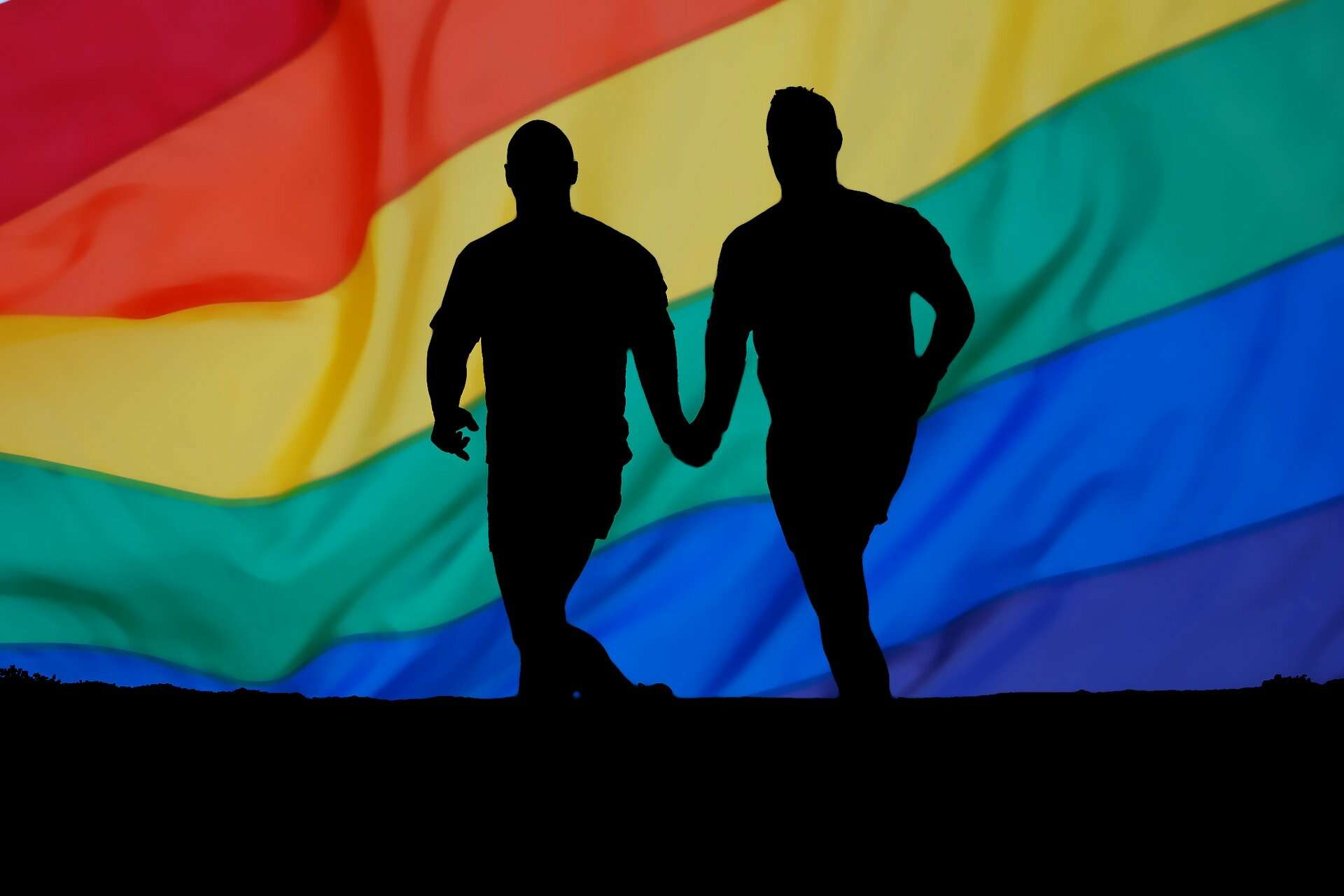
Same-sex Marriage Counselling & Civil-Partnership Therapy
An Exclusive Service for Same-sex Marriages of Gay Couples, and Civil Partnerships, seeking counselling. As LGBTQ+ Couples in intimate partnerships, where do we go for help when we can't resolve our relationship conflicts? When being in need of professional, therapeutic intervention, this is the service you were looking for. Britain achieved Civil Partnerships (2004) and the right to marry (2013/14). Subsequently… some of us discovered that we were struggling to meet the demands of our new, formal commitments…Same-Sex Marriages – Helpful Therapy
If a primary aim of therapy for an LGBTQ+ Same-Sex Marriage or Civil Partnership is to assist the partners in resolving conflicts and relationship problems, how do we create a distinctive & effective form of counselling that supports this partnership’s distinct difficulties and needs?
Tailored LGBTQ+ Relationship Therapy:
Dean's approach creates a personalised therapeutic environment. Employing 26 years of therapeutic skill, he facilitates a collaborative process that incorporates your relationship's unique needs, ideas, and suggestions. This open, honest communication can bring about the changes you seek.
Embracing Your Strengths:
By avoiding a "one-size-fits-all" approach, Dean builds on your relationship's strengths, skills and experience. Working together, we gain a deeper understanding of your relationship dynamics. This assists with developing new & effective behaviours for navigating and transforming conflicts - both now and in the future.
Long-Term (Re-)Solutions:
Bespoke relationship therapy, empowers you to create lasting changes. You can walk away with skills, knowledge and application that helps you to maintain your relationship's functioning for years to come.
This form of therapy is not always an easy road to travel — there will be work to do with some difficulties to face, which can sometimes be stressful. However, our goal is to develop this process into something unique, beneficial, and lasting that you will take away having actively invested in its growth.
This is the LGBT-Exclusive Service that can benefit you when your marriage or civil partnership is struggling or breaking-up. Let’s talk about our most important Gay, Lesbian, Bi & Queer relationship to a real-life, gay therapist! Dean Richardson MNCPS (Accred/Reg) ~ a distinctive video therapy service employing over 26 years+ of expertise.
Starting Therapy
At the beginning of same-sex marriage counselling, Dean (an experienced therapist for LGBTQ+ Intimate Partnerships) holds (what we call) the therapeutic frame (an approach known as “containment”) whilst the couple find their feet within therapy sessions.
In other words: this couple needs to feel safe enough to make use of therapy. They may not know how to begin, what to talk about, nor how to go about fixing things. One of the primary tasks of marriage counselling is to develop the couple’s skill at learning new information about how they relate. If they can learn something new, they get the power to make a change together, even if it’s a very small change. With new information comes new options.
The theoretical rationale for this effective therapy stems from The Milan Associates‘ 1970s discoveries about family behaviour (next section).
Systemic Approach for Civil Partnerships
Believe it or not: your marital partnership is a system. A system that has been created by the both of you over time, and one that responds to different needs, circumstances, and input. We hope that when we marry, the system (or “relationship”) we develop together will be full of happiness, and the both of you will work together on problems as they arise.
But sometimes the relationship – the system – develops faults or brings in flaws from places that we’re unaware of (such as some of our past experiences); this can be difficult to fix easily.
This is where a systemic counselling approach for civil partnerships & same-sex marriages can be helpful to a relationship that’s helplessly in trouble.
A systemic model of therapy is an effective way for us to learn about where the system (the marriage) is going wrong, what’s contributing to the faults and inability to apply solutions, and what’s giving the marriage the power to identify behavioural changes (changes to their system) that they might make together.
What is a Relationship System
Let’s compare two systems: your washing machine and your relationship (trust me on this…)
Your Washing Machine.
You prepare the system with clothes and washing powder, then set it going. The machine will:-
- add water,
- agitate the clothes,
- spin, rinse, add conitioner,
- spin then stop.
Discussion:
The washing machine employs a system that usually works well. However, notice that each event is (helplessly) dependent on the previous one occurring first.
The system can't go in a different direction or think about what to do (such as deciding to wash the clothes longer because they are dirtier).
Your Relationship.
You prepare the system with a conflicting proposal ("we have to visit my mother today"). You respond with:-
- "I said I had an appointment."
- Him: "her needs are important!"
- You: "this ALWAYS happens!"
- Him: "you're not listening!!!"
Discussion:
The relationship employs a system that usually works well. However, notice that an argument is developing due to each response being (helplessly) dependent on the previous one.
The system isn't (yet) able to go in a different direction or think about what to do (such as considering a different response due to the escalating situation).
Each event is (or has become) dependent upon the previous event (are you noticing the similarities between these two helpless systems?).
This example is not meant to dumb-down the seriousness, and unhappiness in a couple’s relationship; of course you’re not a washing machine. But by looking at behaviour as a form of a system, in systemic couple counselling (which is what LGBTCoupleCounselling.co.uk offers), we can help the couple recognise what’s happening, and promote changes to their relationship system.
Furthermore, by the end of the work, the couple will no longer require the counsellor for future issues that arise.
For more information, see the blog post opposite…
What Therapy Provides 🫴
Different relationship counsellors work in different ways.
Dean's core approach is the integration of psychodynamic and systemic theoretical models (along with whatever is helpful, to be honest!). But let's give you a more plain-English overview of what each counselling session can provide for you.
- A complete 50-minute session (or 90 minutes for throuples and groups) that begins on the hour, will not start late, and ends at a consistent and predictable time.
- Over 26 years of therapeutic skills including: reframing of subject matter that can bring comprehension, behavioural interpretation, identification of unconscious processes (projection, splitting, etc), insightful comments, observations, active listening, and knowledge of LGBTQ+ relationships that can help you make informed choices around relationship change.
- Non-judgement respect for this being your distinct relationship, avoiding diagnoses, pathologising, and prescribing to you: "how a normal relationship would deal with this is..."
- Techniques and approaches that can help all partners confront, halt and transform unhappy behaviour.
- Unlimited opportunities to contribute your own ideas, suggestions and hypotheses.
- Unlimited opportunities to gain new knowledge and comprehension about their partner's (and their own) behaviour and motivations in the context of this relationship.
- Unlimited homework opportunities: to discuss, plan and design your own homework in between sessions.
- The same counsellor every session, so that the connection you build with Dean can become dependable and trustworthy.
- Weekly appointments scheduled for the same day and time (excepting planned holidays), giving you the flexibility to manage your personal schedule without squeezing-in future counselling sessions.
- A professional facilitative approach that can assist you and your partner(s) in identifying your own problems, interrupting faults, and putting in corrective behaviour. A strategy you can use and re-use for years to come.
- A therapist who listens for the problems that your relationship cannot hear and who maintains a neutral position (e.g. does not take sides).
- Reliable and containing boundaries - whether it's as simple as time keeping or more complex such as distressing subject material.
- Flexible and dynamic outcomes - your goals at the beginning of our work together may change over time. We will manage whatever new matters your relationship needs to attend to.
- Helpful support during distressing and emotional times.
- Support in finding ways to bring the counselling work to an end. We can stop our work at any time, and discussing this with your counsellor can help find creative ways to plan for the partners to continue their work.
Therapy with your Partnership
One of the most common misconceptions about civil-marriage counselling is that the partners will come and describe their symptoms in order for the therapist to prescribe how they should go about dealing with their “illness.” Perhaps there’s even a hope that the therapist will fix the illness on their behalf.
As a result, the partners’ first disappointment may be learning how to manage their perceptions: “why isn’t the therapist fixing our marriage for us?!” or “why isn’t he telling us what to do?”. You can read more about this here: Why Relationship Therapy May Not Work….

Discussing Concerns
Of course, the partners are welcome (and even encouraged) to talk to the therapist about their assumptions and hopes for therapy, during the session.
An issue may be that the partners are experiencing the sessions as a form of projection (i.e. how they relate, disappointingly, to each other may be being mirrored in how they’re relating, disappointingly, to the therapist). A therapist of Dean’s background can use such experiences – brought by the marriage in therapy – by discussing these disappointments with the couple. Together we get to understand the processes happening within the marriage in greater detail.
This is just one approach where working therapeutically together can begin to alter the marriage’s behaviour system.
This is therapy with the partnership, not done to it.
(Re-)Solutions you’ve been Seeking
A systemic approach to same-marriage therapy / civil-partnerships can be the solution you’ve been seeking (but didn’t know it yet).
Systemic therapy is a framework that works for both civil-partnerships and same-sex marriages alike that gay men, lesbian women, bisexual marriages and those in the vast LGBT/QIA+ spectrum of gender identity and sexual diversity can make use of. The therapy offers LGBT/QIA+ marriages and civil-partnerships a distinctive way to address issues, move forward, and resolve conflicts with intimacy and/or sexual engagement.
As therapeutic allies, the three of us work together in weekly sessions. We discuss what will be the focus of our work at the outset. Partners coming into therapy may believe they already understand their issues. When we start talking about things in depth, though, frequently there’s a realisation of deeper, more complex matters around the partners’ problem.
This is where Systemic therapy works well because noticing new material is good . Doing so suggests that the more knowledge we gain (through curiosity), the easier it becomes to break-down behavioural problems into more manageable pieces. Opportunities for change follows.
As therapy progresses
We will turn our attention to inspired learning about what can be done to improve the marriage’s behaviour. We’ll rely on the marriage partners’ own ingenuity, inspiration, and ability to hypothesise (i.e. thinking about what might be going on, or what might be hidden feelings that may be masked by behaviour).
As Dean’s presence becomes secondary in the marriage counselling process, we’ll talk about how we might like to plan the end of our work. The partners will continue their relationship work together without further therapy sessions.
AN ADDED BONUS TO THIS PROCESS: the marital partners will continue their relationship process after they leave therapy. This continuation further establishes the couple’s independence from marriage therapy and eliminates any expectation that they will need to return for “top up” sessions. They’ve become capable of managing their conflicts… together

Three Stages of Marital Therapy
It might be a new concept to you: the idea that marriage therapy could have three stages.
But if I say: “Beginning, Middle, End” then this idea becomes more familiar.
It can be helpful for a same-sex marriage meeting with a therapist to identify stages, as without any form of a map or structure the process could seem daunting.
Even though marriage therapy builds its structure based upon the distinct needs from your partnership, having some mental markers (such as beginning, middle, end) can provide reassurance to the partners that the process is progressing as the marriage would like.
Lesbian and gay partners in civil-partnerships and marriages make use of the Three Stages of Marital Therapy as follows…

Telling your Relationship Story… together
Think of Therapy being like this:-
A civil partnership (or marriage) comes to a therapist, and they’re carrying an open box with them. Within the box are many jigsaw puzzle pieces, all mixed up. Each jigsaw piece represents an aspect of the relationship, and the partners believe that all of the pieces are present in the box.
“Blue pieces are for the sky” says one partner.
“Wait… no! Blue pieces are for the sea!!” says the other partner.
An argument begins because, as we all know, a blue piece could be the sky, the sea, or something else. But this couple found that some blue pieces fit together while others do not, and they were trying to argue from the position of being “the partner whose view is the correct one”.
What we can learn is that the couple is arguing about their individual assumptions about blue pieces and how the picture should look based on these assumptions.

Available Nationwide… from your Home
Using Two Video Devices
Dean has more than 18 years’ practice in working in LGBT Marriage-Therapy over Internet Video. His first private practice focussed upon gay & lesbian marriages in Long Distance Relationships (e.g. living in different countries).
Dean – along with his client partners – discovered that using one-device per partner (as long-distance partners could only do) was also therapeutically beneficial to those living together. Partners gave feedback saying it gave them a useful sense of “we’re not talking with each other at home” during counselling sessions. Topics too difficult to talk about at home became more accessible due to the use of two video devices. The approach enhanced discussions and the partners’ creativity.
You can attend therapy from your home, your office, your car, or even on a hike using a smartphone, computer or tablet. They all work well.
Flexible Video Arrangements
This is not a set-in-stone requirement; Dean’s distinct approach makes use of hardware already at the partner’s disposal: any mix of Smartphones, tablets, PCs, Macs. So we can be flexible with how we do this.
Want to know more? Click the following…

Might you be seeking Family Mediation? ⚠️
Counsellors and mediators have quasi-comparable skills (skills that appear to be the same), which can leave you struggling to decide which professional service might benefit your relationship the most.
Counsellors are not mediators, and mediators are not counsellors. In summary:
- Counsellors are trained/qualified to support parties who wish to reconcile (and may wish to investigate separation), and who need to explore historical problems and more deep-rooted historical issues in their relationship, etc.
- Mediators are trained/qualified to support parties wishing to separate amicably, maintain boundaries in keeping discussions targeted towards the future, mitigate "blaming-behaviour", etc.
About Dean Richardson MNCPS (Accred/Reg)
You could choose any couple / group counsellor…
Given that this will be the most intimate and vulnerable you could feel alongside your partner(s), you would want a skilled professional whose experience and specialism you could trust; whose focus would be upon your distinct relationship. Your couple, throuple or group relationship will be in good hands with Dean. He works from Great Britain, is Independent of "box 'em/shift 'em" therapy services, and identifies as a gay couple counsellor. He's also easily payable in pounds sterling! Dean already had an impressive 18 years actual video "webcam" experience - way before the first British emergency began (when suddenly many counsellors added a Video option to their portfolio, having not practised so previously! 🤔).
What makes Dean Distinct
- Dean is sensitive and effective to your sexuality / gender-identity and intimate ways of relating to each other. You'll discover quickly that Dean is an informed member of your own community.
- Dean demonstrates adept skills with lesbian, gay, bisexual, asexual, fluid, mixed sexuality and same-or-mixed gender relationships having over 26 years' experience as a counsellor.
- Dean avoids taking a the role of "all-knowing expert" (whether requested or projected onto him by the clients). "Experts" tell you what to do, do not learn very well from others, and struggle to adapt to new situations. A couple counsellor must be curious, adaptive, and ask questions from a "not knowing" position so that the relationship in counselling benefits from re-examination.
- Dean speaks plain English (and can swear like a virtuoso if you like, or not at all if you prefer). He works cooperatively with your relationship (no unnecessary silence, or just "hmms...").
- Dean was originally accredited by his first professional body 17 years ago; he is now an accredited registrant with The National Counselling and Psychotherapy Society. Accreditation is a valued recognition of a counsellor's substantial experience. Dean is also a member of the Psychotherapy and Counselling Union of Great Britain.
- Dean is a British Counsellor working from the South of England. Unlike other counselling services operating from abroad Dean is registered, accredited, insured & supervised from within England (not from abroad).

If any of this resonates with you and your partner(s), you should probably meet with the Gay Relationship Counsellor: Dean Richardson MNCPS (Accred/Reg) via Zoom, Teams, Whatsapp and other secure, reliable video conferencing media.
Dean focuses on LGBT/QIA+ relationships as a specialty in therapy. He works with individuals, couples and small groups. Plus, he's qualified to a postgraduate level (Chichester PG Diploma in Psychodynamic / Systemic Couple Counselling, IGA National Foundation in Group Counselling), and works as a private practice counsellor employing 26+ years experience*.
(*Very Important: not all counsellors have such specific skills for working with couples nor groups. Those who are initially trained to use common "Individual" Counselling skills have no experience in working therapeutically with relationships. Such counsellors may try, perhaps out of misplaced goodwill, to employ "individual" techniques (multiplied by 2) but the couple or group will find that the approach is ineffective. Simply put: it's the wrong approach; your relationship is not part of the counsellor's primary theoretical framework. Remember always to ask your potential counsellor: "what qualifies you to work with our relationship?" and trust your instincts based on what you hear.
Contents
- 1 Same-Sex Marriages – Helpful Therapy
- 2 Systemic Approach for Civil Partnerships
- 3 What Therapy Provides 🫴
- 4 Therapy with your Partnership
- 5 Three Stages of Marital Therapy
- 6 Telling your Relationship Story… together
- 7 Available Nationwide… from your Home
- 8 Might you be seeking Family Mediation? ⚠️
- 9 About Dean Richardson MNCPS (Accred/Reg)












